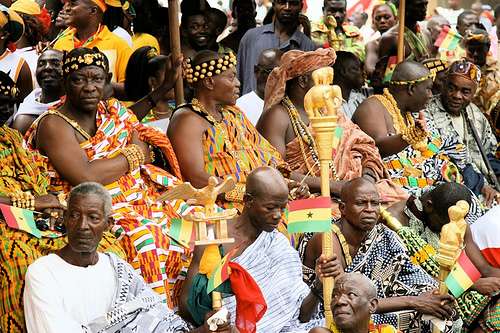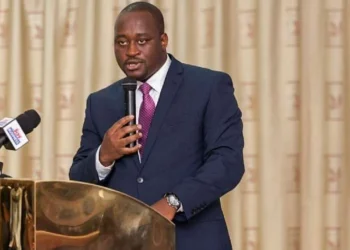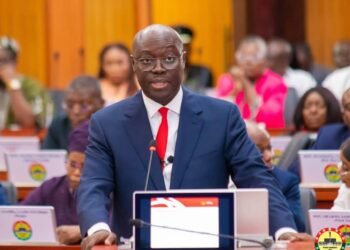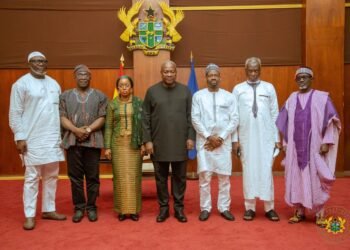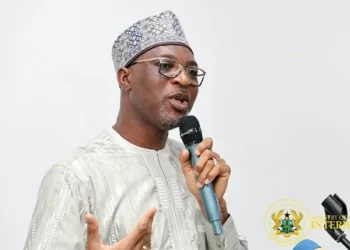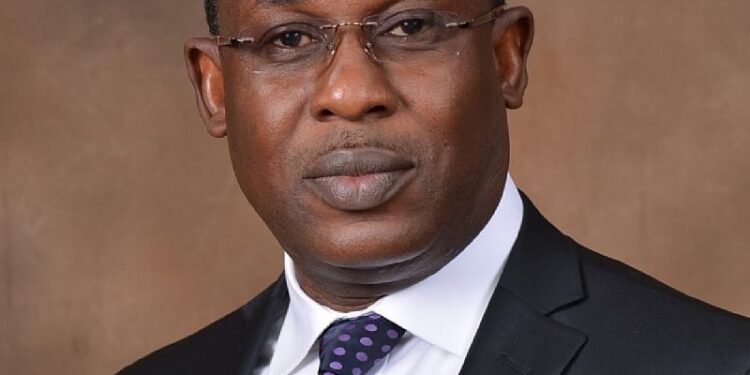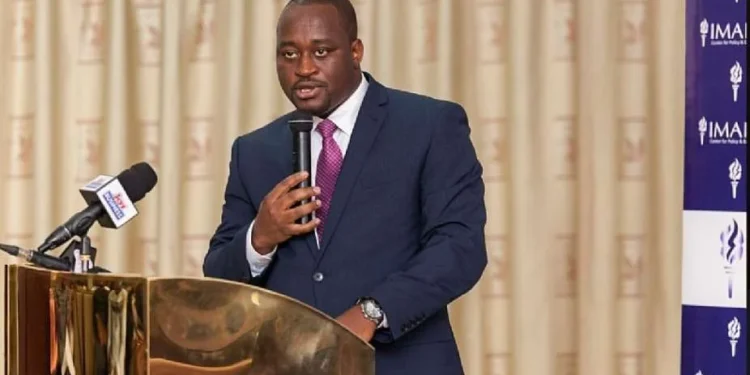Security Analyst Richard Kumadoe has made a startling accusation against politicians, claiming that they are actively fueling chieftaincy disputes in the country.
According to him, politicians are not only involved in the selection of chiefs but also deliberately escalate tensions and conflicts, only to later shift the blame to the chiefs themselves.
Kumadoe suggested that politicians are exploiting chieftaincy disputes for their own gain, possibly to gain political mileage or to further their own interests.
“Blame politicians for the numerous chieftaincy disputes in the country. They are actively involved in the selection of chiefs. They decide who should be a chief in a particular community. This is very disturbing. We should all kick against this development and save the country”.
Richard Kumadoe
The Security Analyst expressed that a troubling trend has emerged, where numerous politicians resort to a range of tactics to undermine the authority and credibility of chiefs who do not align with their agendas.
By casting these leaders in a negative light, they seek to diminish their popularity and influence within the community, ultimately jeopardizing the traditional structures that have long been a source of guidance and stability.
In light of this situation, Kumadoe called upon Ghanaians to transcend individual and tribal affiliations, emphasizing the importance of embracing a collective national identity.
He believes that fostering a sense of nationhood is crucial for the country’s progress and unity, especially in a time when divisions can lead to conflict.
Furthermore, Kumadoe voiced deep concern over the escalating chieftaincy disputes within the country.
These conflicts, he warned, are not merely internal issues but represent a significant threat to the broader peace and stability of the nation.
He urged community members to recognize the potential consequences of such disputes and to work collaboratively towards resolving differences in a manner that upholds the values of respect, dialogue, and mutual understanding.
Ghana’s Internal Security Under Threat
Furthermore, Richard Kumadoe emphasized that chieftaincy disputes pose a significant internal security threat that needs to be addressed permanently.
He noted that these disputes make up a substantial part of the daily situational reports received at the Ministry of National Security, making them a pressing concern.

According to Kumadoe, despite being located in a volatile subregion plagued by terrorism and political instability, Ghana has managed to maintain peace and stability, which is a testament to the country’s resilience.
“Internally, however, several threats that have the potential and undermine our peace and stability persist and these include land and chieftaincy disputes, a case in point is the protracted Bawku conflict”.
Richard Kumadoe
He further indicated that the risk of chieftaincy disputes escalating into violent clashes poses a significant threat to national security and stability.
Accordingly, Kumadoe underscored the necessity of the continuous allocation of substantial resources to prevent and manage these threats.
This sustained investment is crucial to mitigate the potential for conflict, protect lives and property, and maintain social cohesion.
He stated that by dedicating resources to address the root causes of chieftaincy disputes, the likelihood of violent confrontations will be reduced.
Kumadoe asserted that this would promote a more peaceful and stable society. “Chieftaincy remains a useful aspect of our culture and heritage”.
According to him, Ghana’s peace and stability are at risk if nonviolent and peaceful mechanisms aren’t adopted to address differences.
This means that without a commitment to nonviolence, disputes will continue to escalate and threaten the country’s stability.
Kumadoe pointed out that nonviolent peacemaking is not just about avoiding physical harm, but also about addressing the root causes of conflict, such as structural and cultural violence.
He asserted that in essence, nonviolent peacemaking requires a proactive approach to conflict resolution that seeks to understand the perspectives of all parties involved.
READ ALSO: Fast Track eCedi Implementation, It’s An Agent for Ghana’s Forex Market Stability- Analyst

